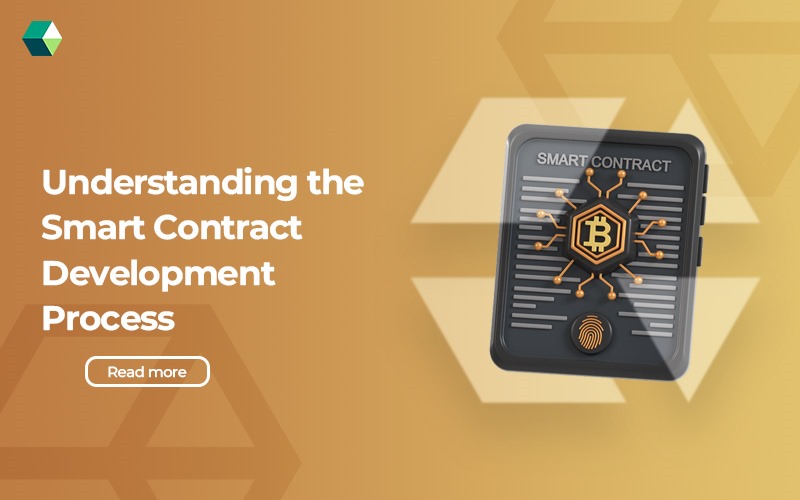Understanding the Smart Contract Development Process

Smart contracts are revolutionizing the way transactions and agreements are handled across various industries. Built on blockchain technology, these self-executing contracts enable automated, secure, and transparent processes. For businesses looking to harness the potential of smart contracts, understanding the development process is crucial. This guide breaks down the essential steps involved in the smart contract development lifecycle and highlights the importance of having expert developers and a secure implementation strategy.
What Are Smart Contracts?
Smart contracts are pieces of code stored on a blockchain that automatically execute specific actions when predefined conditions are met. Because they are decentralized and immutable, they eliminate the need for intermediaries, reducing costs and the risk of fraud. Industries such as finance, real estate, and supply chain management are already leveraging smart contracts to streamline operations and enhance efficiency.
What is the Smart Contract Development Process?
1. Defining the Requirements
- What Problem Does the Smart Contract Solve?
The first step in the development process is to identify the specific problem the smart contract will address. This involves understanding the business requirements and defining the contract’s goals and functionality. Clear communication between stakeholders and developers is essential at this stage to ensure the contract will meet business needs. - Key Considerations– Use cases, expected outcomes, and potential limitations must be clearly outlined. It is also important to discuss the blockchain platform that will be used.
2. Designing the Smart Contract Architecture
- How Will the Contract Work?
Once the requirements are defined, the next step is to design the architecture of the smart contract. This involves creating a blueprint of how the contract will function, the data it will handle, and the different interactions it will support. During this phase, developers need to consider the most efficient and secure way to implement the contract logic. - Tools and Techniques– Flowcharts and UML diagrams are often used to map out the contract’s structure and data flow.
3. Writing the Smart Contract Code
- Which Programming Languages Are Used?
Smart contracts are typically written in languages like Solidity (for Ethereum), Vyper, or Rust. Skilled developers translate the architecture into code, ensuring that the contract logic is accurately represented. Our Smart Contract Development Services focus on writing clean, efficient, and secure code to minimize vulnerabilities. - Key Concepts– Developers must understand gas optimization, data storage, and transaction management to create an effective smart contract.
4. Testing and Auditing
- Why Is Testing So Important?
Before deploying the smart contract on the main blockchain, extensive testing is required to ensure it works as intended. This step involves running simulations and unit tests to catch bugs or vulnerabilities. Smart contract testing tools, such as Truffle and Hardhat, are commonly used to perform rigorous assessments. - Smart Contract Security Audits– Security is a top priority, as smart contracts cannot be modified once deployed. Our Smart Contract Security Company conducts thorough audits to protect against potential exploits and ensure the contract’s integrity.
5. Deployment on the Blockchain
- How Is the Contract Deployed?
Once the contract passes all tests and audits, it is deployed on the chosen blockchain network. This process involves publishing the contract’s code and making it accessible for execution. After deployment, the contract is live and can begin to interact with other smart contracts and users. - Deployment Services– Our Smart Contract Deployment Services handle all aspects of this process, ensuring seamless integration with your existing systems.
6. Monitoring and Maintenance
- What Happens After Deployment?
Even after deployment, ongoing monitoring is crucial to ensure the smart contract continues to perform as expected. Developers may need to address issues that arise from network updates or changes in user behavior. While smart contracts are immutable, additional layers of monitoring and governance can help mitigate future risks.
The Role of a Professional Smart Contract Development Company
Partnering with an experienced Smart Contract Development Company is essential for a successful project. At Nadcab Labs, we provide comprehensive services, including design, coding, testing, and deployment. Our team of Top Smart Contract Developers and smart contract blockchain experts work to deliver tailored solutions that align with your business objectives.
- Custom Solutions– Every business has unique needs, which is why we focus on creating Custom Smart Contract Solutions. From DeFi platforms to supply chain management, our developers build contracts that are secure, efficient, and scalable.
- Expert Guidance– With years of experience in blockchain technology, our Smart Contract Development Agency offers expert guidance throughout the entire process, ensuring your project is built on a solid foundation.
Best Practices for Smart Contract Development
- Code Efficiency– Writing optimized code is crucial to minimize gas costs and ensure smooth execution on the blockchain.
- Security First– Always prioritize security by conducting multiple layers of testing and hiring a reputable Smart Contract Security Company for audits.
- Documentation– Proper documentation helps stakeholders and future developers understand the contract’s functionality and logic.
- Stay Updated– Blockchain technology is constantly evolving, so staying up-to-date with the latest developments is vital for long-term success.








